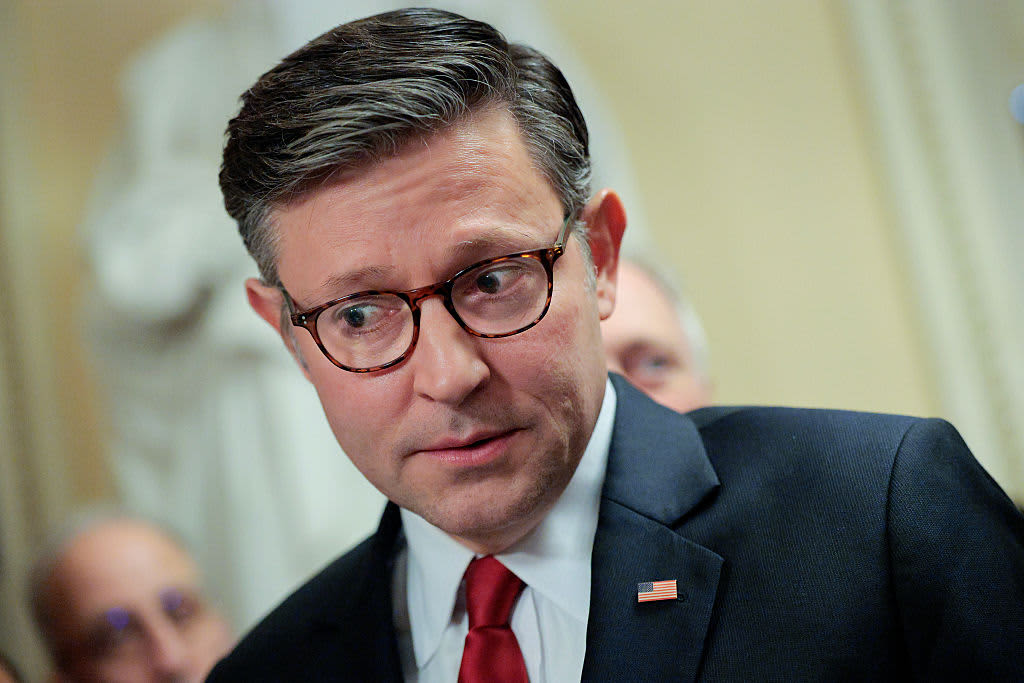President Donald Trump’s signature tax and spending bill is on the verge of suffering a significant blow, as House Republican leaders appear unable to secure enough votes within their own party to move the massive package to a final vote on the floor.
Five Republican noes have been cast, enough to tank the bill unless two of them flip to a yes. The members who have voted no span the ideological spectrum, from hardline conservatives to a moderate from Pennsylvania.
A vote to approve the rules of debate got underway Wednesday shortly before 10 p.m. ET. Unless these rules are approved, the chamber cannot begin the debate required ahead of a final vote on legislation.
The trouble House Republicans find themselves in is not a total surprise. Numerous rank-and-file members have dug in on their opposition to the tax-and-spending package throughout the day, casting doubts about just how much pressure Speaker Mike Johnson can exert on them to back the bill.
Both moderates and conservative hardliners are demanding changes to a Senate version of the bill.
Earlier in the day Wednesday, a key step in helping skeptical Republicans get to yes was direct intervention by Trump himself.
The White House hosted several groups of House Republicans for talks, including moderates and hardliners who opposed the bill in its revised form.
Trump also deployed a team to Capitol Hill that included Russ Vought, director of the White House Office of Management and Budget, to meet with holdouts.
While conservative holdouts to Trump’s massive bill have drawn the most media attention, there is also a group of moderate Republicans who have big problems with cuts to Medicaid.
The Senate bill made even deeper cuts to the health insurance program than the ones originally passed by the House.
These moderate Republicans represent districts that are typically carried by Democrats in presidential elections. This gives the White House fewer leverage points over them than Trump might have for a member whose constituents voted Republican.
The Senate squeaked out passage of its version of Trump’s megabill on Tuesday, with Vice President JD Vance required to come in and cast the tie-breaking vote. Lawmakers in the lower chamber must approve the Senate’s revisions before the bill can go to Trump’s desk to be signed into law.
When the House voted on its own version of the bill in May, Johnson was at least able to offer last-minute concessions to the skeptical members in his conference to get them on board.
Now, any last minute changes would automatically send the bill back to the Senate for another vote, which would make the self-imposed July 4 deadline nearly impossible to reach.
— CNBC’s Greta Reich contributed reporting
This is developing news. Please check back for updates.
International: Top News And Analysis
Read the full article <a href="Read More” target=”_blank”>here.


